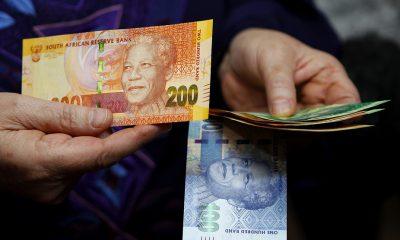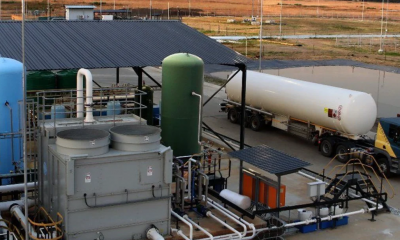News
Johannesburg Initiates First Phase of Load Shedding Eradication Plan

Johannesburg’s City Power has significantly strived toward energy self-sufficiency by procuring 92MW of electricity from independent power producers (IPPs). This strategic move marks the inaugural phase of the city’s ambitious plan to generate 500MW of its own power by 2030 to mitigate the impact of load shedding as reported by Htxt.
Also Read: Bikers of Bronkhorstspruit Unite to Support Fellow Rider
The metropolis heralded as South Africa’s most populous and economically pivotal city has chosen to host the ongoing BRICS summit, underscoring its central role. With a substantial budget, Johannesburg has been diligently exploring avenues to curtail the economic repercussions of load shedding since February.
City Power, the municipal electricity infrastructure entity, made a formal announcement on Thursday, confirming the finalissation of an agreement to secure 92 megawatts (MW) of electricity from four distinct IPPs. This move is a calculated response to counter the challenges of Eskom’s rotational power outages.
Procuring these megawatts is intrinsically connected to a comprehensive strategy aimed at mitigating the impact of load shedding within Johannesburg. This larger vision culminates in the city’s aim to generate 500MW through independent means by 2030, as outlined in the announcement.
Jack Sekwaila, Johannesburg’s MMC for Environment and Infrastructure Services, stood alongside Tshilufaro Mashava, City Power’s CEO, as they unveiled this pivotal first step.
City Power refrains from specifying the specific integration of this new energy into Johannesburg’s power grid or the extent to which it will alleviate the load-shedding challenges. Regarding the origin of these megawatts, City Power notes that the four chosen IPPs harness power from diverse sources.
These include waste-to-energy systems contributing 20MW, gas-to-power solutions generating 31MW, and photovoltaic solar generation yielding 40.8MW. One IPP specialising in gas-to-power generation is set to provide City Power with a continuous 24/7 power supply.
Described as a “major step,” the power purchase agreement signals City Power’s determination to reduce its dependency on Eskom. The official statement highlights the added benefit of cost-effectiveness compared to Eskom’s supply and the readiness of two IPPs to promptly integrate into the grid.
In a comprehensive response to the challenges of power outages, City Power unveils a range of initiatives. Among them is installing solar panels on over 700 sites across Johannesburg, coupled with establishing more than 20,000 rooftop water heating systems and geysers, particularly targeting low-income areas.
Earlier this year, Gauteng Premier Panyaza Lesufi disclosed plans to construct an 800MW solar farm in Merafong, located in the West Rand. This endeavour aims to furnish neighbouring municipalities with electricity, contributing to load-shedding reduction efforts.
Reflecting on its trajectory, City Power underscores its commitment to shaping a diversified energy landscape that enhances accessibility and affordability for its clientele. This strategic shift signifies the entity’s transformation from an electricity supplier to a comprehensive energy provider.
Also Read:
Follow us on Google News
Photo: Twitter / @City of Joburg






















